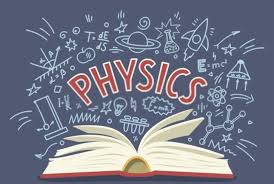Physics
Physics
The study of physical characteristics, processes, or natural events, specific systems, or the composition of matter is referred to as the study of physics, a field of science. The focus of the subject is on areas such as heat, motion, momentum, fluids, circuits, light, radiation, electromagnetism, mechanics, atomic structure, and other relevant topics. The study of behaviour is quite extensive and is growing. Because it incorporates astronomy, physics is one of the oldest academic fields and possibly the oldest. Physics, chemistry, biology, and some disciplines of mathematics have been a part of natural philosophy for a large portion of the previous two millennia, but during the Scientific Revolution in the 17th century, these natural sciences became independent research fields.
The boundaries of physics are not clearly defined, and it intersects with many interdisciplinary fields of study, including quantum chemistry and biophysics. New physics theories frequently provide light on the underlying processes investigated by other sciences and suggest new directions for study in fields like mathematics and philosophy. At Jemia’h, we make sure every student is fully equipped with the maths and physics knowledge they need to succeed in school, in the workplace, and in life.

A level Physics. AS the core contents
A level Course contents:
In AS and A level, students cover topics alongside their practical sessions. The practical sessions are internally assessed and endorsed during the course to help students to develop and demonstrate their understanding and competencies.
Assessments
AS Level Assessment
AS Level Specification – AQA 7407
Paper 1: Sections 1-5 from the above.
- Written exam: 1 hour 30 minutes, 70 marks, 50% of AS
- Questions: Short and long answer questions split by topic
- Relevant practical skills
- Written exam: 50% of the AS
- 1 hour 30 minutes 80 marks
- 65 marks of short and long answer questions
- 15 marks of multiple-choice questions
Paper 2: Sections 1-5 from the above Written exam: 1 hour 30 minutes, 70 marks, 50% of AS Questions:
- Section A: 20 marks of short and long answer questions on practical skills and data analysis,
- Section B: 20 marks of short and long answer questions from across all areas of AS content,
- Section C: 30 multiple choice questions
- Written exam: 50% of the AS
- 1 hour 30 minutes 80 marks
- 65 marks of short and long answer questions
- 15 marks of multiple-choice questions
A Level Assessments
A Level Specification – AQA 7408
Paper 1:
- Sections 1 to 5 and 6.1 (Periodic motion)
- Written exam: 2 hours, 85 marks, 34% of A level
- Written exam: 2 hours, 85 marks, 34% of A level Questions: 60 marks of short and long answer questions and 25 multiple choice questions on content
Paper 2
- Sections 6.2 (Thermal Physics), 7 and 8 (and assumed knowledge from sections 1 to 6.1)
- Written exam: 2 hours, 85 marks, 34% of A level
- Questions: 60 marks of short and long answer questions and 25 multiple choice questions on content
Paper 3:
- Section A: Practical skills and data analysis
- Section B: Students enter for one of the available options
- Written exam: 2 hours, 80 marks, 32% of A level
- Questions: 45 marks of short and long answer questions on practical experiments and data analysis, 35 marks of short and long answer questions on the option topic
